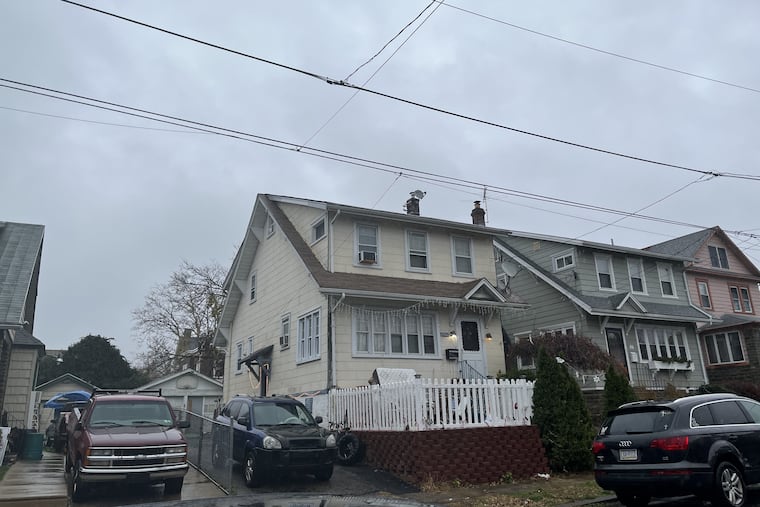Police were called 21 times this year to the Northeast Philly home where a woman was decapitated
Ahmad Shareef, 34, was charged with murder in connection with the slaying inside the Lawndale home, where police had earlier responded to calls about domestic disturbances.

Since the beginning of the year, Philadelphia police have been called 21 times to the Lawndale house where a woman was found decapitated this week, a law enforcement source said Thursday.
Seven of those calls to the two-story home on the 300 block of Magee Avenue were for reports of domestic disturbances. One of the calls was for a person with a gun and some of the others were reports of fights between a man and a woman, the source said.
It was unclear whether any of those incidents involved the victim of Tuesday’s homicide, Leila Al Raheel, 41, or Ahmad Shareef, the 34-year-old man accused of killing her.
Word of repeated calls to the home steps away from Tacony Creek is the latest development in a gruesome slaying that shook the Lawndale neighborhood.
Al Raheel was found dead in the home Tuesday afternoon, after police responded to a report of a stabbing and found her headless corpse.
Minutes later, police discovered Shareef hiding a distance away. They also recovered a knife, police said.
Shareef was charged with murder, abuse of a corpse, and possessing an instrument of crime, authorities said. He was being held without bail.
It was unclear what, if any, relationship Shareef and Al Raheel had beyond living in the same house, but authorities said the slaying was being investigated as a domestic homicide.
On Wednesday, a day after the killing, the narrow block of Magee Avenue was quiet, many of the houses decked out with holiday decorations. The pale-yellow two-story clapboard house the two called home showed no outward signs of the violence that had unfolded inside. Candy cane decorations lined a small white picket fence on the front porch, and icicle-shaped lights dangled from a front ledge.
But cardboard boxes, chairs, and a mattress littered the front of the house outside. And a detached garage with gray doors bore peeling paint.
A young girl who answered the door Wednesday said a woman inside was in too much distress to talk.
“Leave us alone!” the woman shouted as the girl quietly closed the door.
Neighbors said that as many as 10 people had been living in the house, and that some of them may have been staying in the garage. Shareef and at least one other man who lived there behaved aggressively toward others on the street, threatened neighbors, and got into fights, they said. Shareef sometimes came outside wearing only boxer shorts, a habit that some nearby residents said left them unsettled.
Al Raheel, neighbors said, spent her days cleaning the house and often came outside barefoot after being ordered to do chores like cleaning up after dogs, hauling garbage in and out of the house, and cleaning up the property.
One nearby resident, who asked not to be identified, said the occupants of the house were Syrian immigrants who had moved in about seven years ago. At first, the residents were welcomed to the neighborhood, but fights and arguments were soon heard constantly coming from the house.
In one year, the police were called to the residence a coupledozen times, one neighbor said, but the situation subsided in recent years.
There had also been complaints about the condition of the property, city records show. A spokesperson for the city Department of Licenses and Inspections said inspectors visited the house in September 2021 to see whether the garage had been illegally converted into a living space but were unable to gain access. The inspector issued violations for excessive weeds and combustible storage on the property.
Shareef had earlier brushes with the law, court records show.
In October 2016, he was arrested for DUI in West Philadelphia. He didn’t show up for court and there was a bench warrant for his arrest in that case at the time of the murder.
Two years earlier, he was arrested after getting in a fight in Northwest Philadelphia. He pleaded guilty to a summary offense of disorderly conduct and was given no jail time.